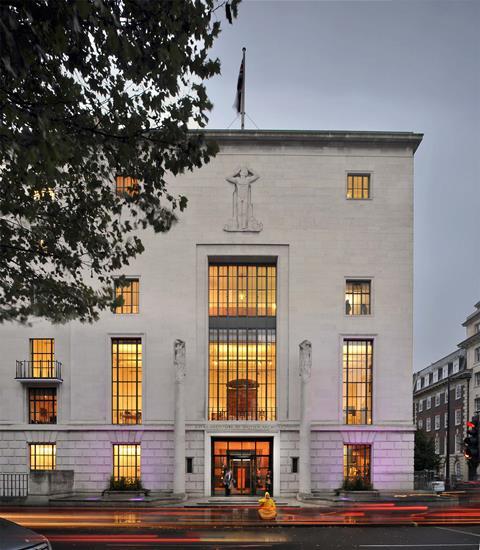Institute wants more stringent safety regulations in non-residential buildings in its full response to Grenfell Inquiry report
The Royal Institute of British Architects (RIBA) has called for existing residential buildings above 18m in height to be refurbished with ‘consequential improvements’ including second staircases.
The institute has issued its full response to the Grenfell Inquiry’s phase 2 report, listing a series of recommendations for improving building safety across the built environment.
Where existing residential buildings over 18m only have one staircase, it is calling for refurbishments with “appropriate safety measures as consequential improvements”.
Where retrofitting a second staircase in these buildings is not possible, it has urged alternative safety measures including evacuation lifts and better fire alarm systems.

RIBA is also calling for all new residential buildings to require at least two staircases functioning as fire-fighting staircases and a broader use of sprinklers across both new and converted buildings where there is a higher risk to vulnerable occupants.
The institute’s recommendations come four months after the publication of the final Grenfell Inquiry report and ahead of the government’s official response to the report in March.
It has also backed the inquiry’s call for a single statutory body like the Engineering Council to oversee a “comprehensive” competence system for construction professionals and a “holistic” review of Approved Document B.
It has backed the inquiry’s call for a single secretary of state to oversee fire safety, and a chief construction advisor to the government who is a “suitably qualified person” such as a chartered professional.
On operational changes, it would like to see independent research and development on construction product testing standards to “restore faith”, obligations of different project team members on construction schemes better defined and for all safety critical guidance to be freely available.
RIBA board chair Jack Pringle said the inquiry report made clear the need for a “fundamental shift in culture and behaviours”.
“The long-term efficacy of the construction sector hinges on making these evidence-based changes. It remains our duty to drive meaningful reform at all levels to deliver a built environment in which the public has complete confidence.”
The body has also called for non-residential buildings including schools, train stations, museums, sports stadiums and music venues to be classed as higher risk buildings, which would require any work at these sites to be subject to more stringent building safety regulations.
The inquiry’s phase 2 report looked into the causes of the fire which killed 72 people at Grenfell tower in June 2017 and followed seven years of hearings with evidence given by hundreds of people involved in the flawed refurbishment of the building which led to the disaster.










No comments yet